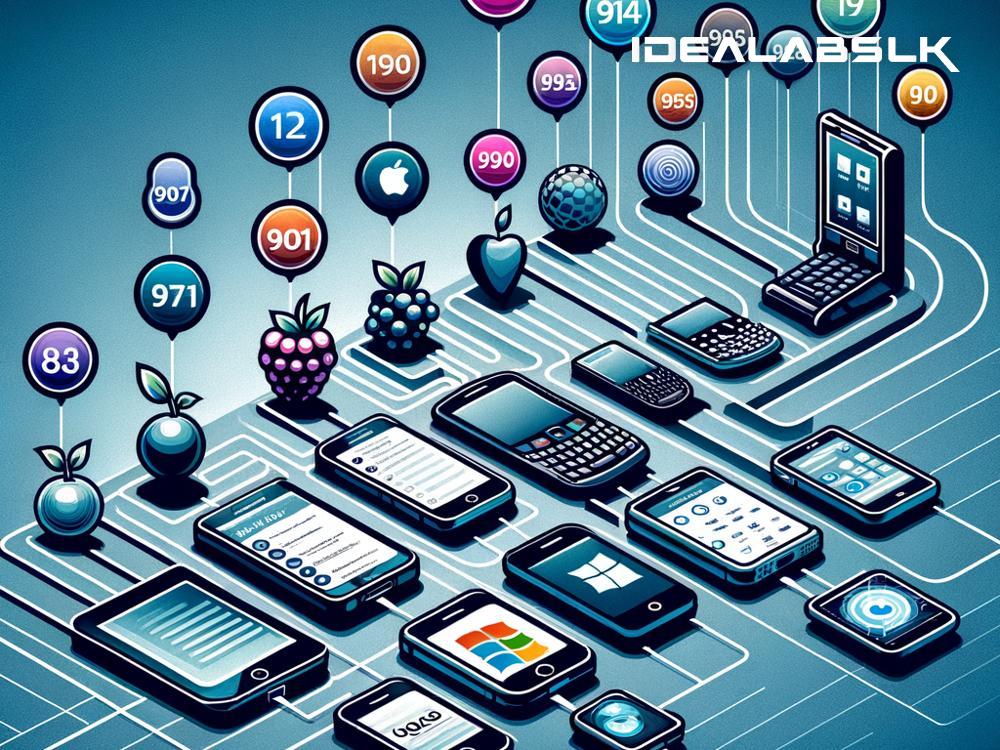Blog Title: How Mobile Operating Systems Grew Up: A Simple Guide
Once upon a time, the idea of carrying a computer in your pocket was the stuff of science fiction. Today, it's a reality we take for granted, thanks to the evolution of mobile operating systems. These tiny software marvels have turned our phones from simple call-making devices into smart gadgets that can do almost everything a computer can. Let's take a stroll down memory lane and witness the incredible journey of mobile operating systems.
The Humble Beginnings
The story began in the late 1990s and early 2000s, when mobile phones were just for making calls and sending texts. Remember those Nokia and Motorola phones? They ran on basic operating systems that were pretty limited in functionality. However, these systems laid the groundwork for all the innovation that was to come.
The Smartphone Revolution
The first game-changer came in 2007 when Apple introduced the iPhone, powered by iOS. It was revolutionary, featuring a user-friendly interface with icons you could tap with your fingers, a far cry from the clunky buttons of the past. The iPhone showed the world what a smartphone could do beyond calls and messages, like browsing the web, taking beautiful photos, and running various apps for just about anything.
Not long after, in 2008, Google introduced Android, an open-source operating system that quickly became the go-to for a variety of phone manufacturers. This diversity made Android immensely popular worldwide. iOS and Android became the dominant forces in the mobile world, pushing innovation to new heights.
Features and Flexibility
Over the years, both Android and iOS have introduced features that have drastically changed how we interact with our smartphones. From the ability to download countless apps from dedicated app stores to personal assistants like Siri and Google Assistant, these operating systems have gotten smarter and more helpful.
The flexibility of Android has allowed for a wide range of devices with different price points, making smartphones accessible to a larger audience. Meanwhile, iOS has focused on creating a seamless experience across Apple's ecosystem, linking iPhones, iPads, Macs, and Apple Watches together.
Security and Updates
As our reliance on smartphones has grown, so has the importance of security. Both iOS and Android have ramped up their security features over the years, introducing fingerprint and facial recognition, secure payments, and regular updates to protect users from new threats.
Updates have also brought improvements and new features to make our smartphones even smarter. From early, simple interfaces, we've moved to sleek, intuitive designs that can be customized to our liking. These updates ensure that older devices can still enjoy the latest advancements, extending their life and making them better over time.
The Future
The evolution of mobile operating systems is far from over. We're seeing the beginnings of foldable phones, augmented reality (AR) becoming mainstream, and the integration of artificial intelligence (AI) to make our phones even more intuitive. The future promises even more innovation, possibly changing how we perceive and interact with our smartphones.
Wearables, such as smartwatches and fitness trackers, are becoming more integrated with smartphones, acting as extensions of our mobile operating systems. The line between mobile and desktop computing is blurring, with initiatives like Samsung Dex and Apple's continuity features allowing our smartphones to power desktop experiences.
In Conclusion
The journey of mobile operating systems from simple call-making software to the complex, feature-rich platforms we use today is a testament to human ingenuity and innovation. They have transformed not just how we communicate but how we live, work, and play. As we look ahead, it's clear that the evolution of mobile operating systems will continue to shape our digital world, making our future even more interconnected and smarter. Who knows what magic the next update will bring?
In simple terms, the story of mobile operating systems is a story of constant improvement and innovation. From the basic interfaces of the early 2000s to the modern, sophisticated systems we use today, these platforms have evolved to become an integral part of our daily lives. As technology continues to advance, we can only imagine the new features and capabilities that await us. So, here's to the next chapter in the exciting evolution of mobile operating systems!

